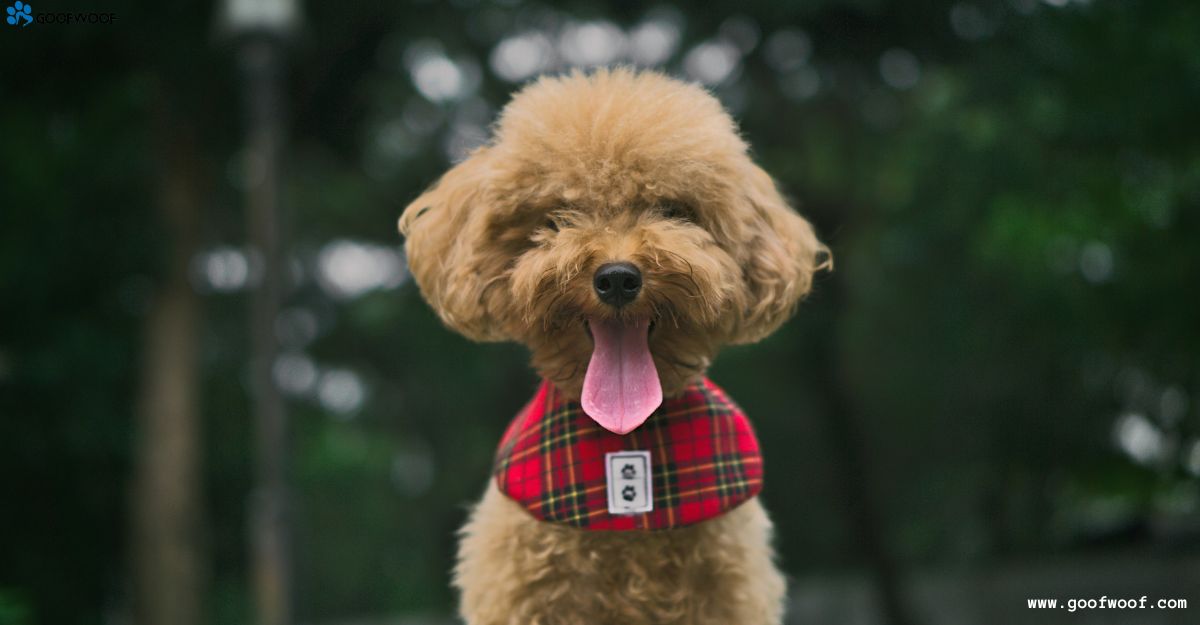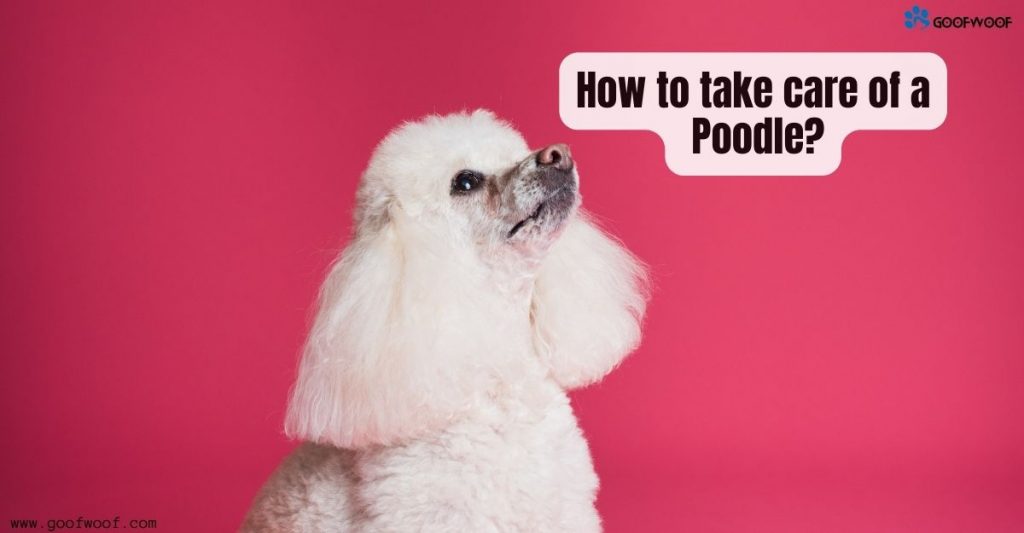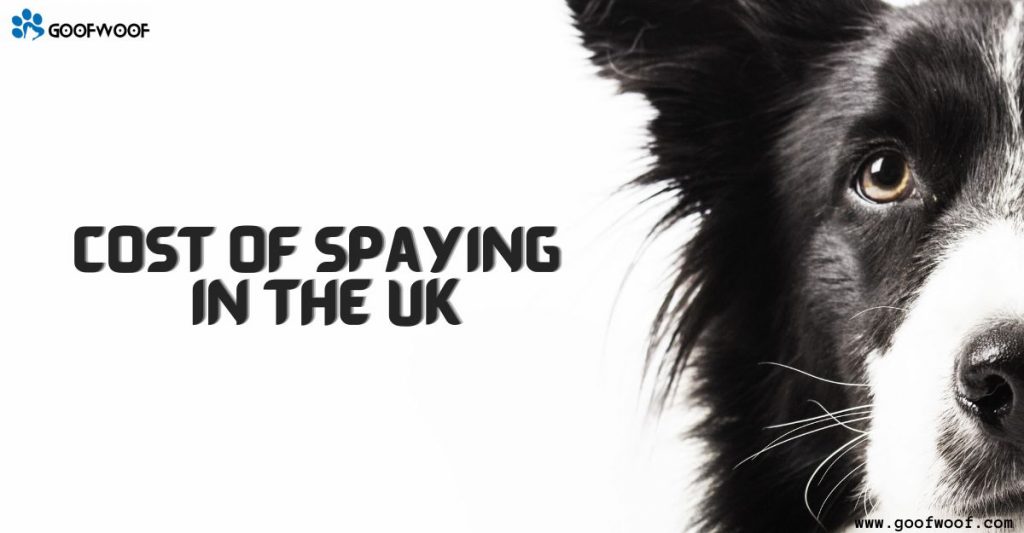Poodles are a breed of dog known for their curly, hypoallergenic coat and intelligence. Poodles are elegant, proud, and sociable dogs that make great family pets and can excel in various activities such as obedience, agility, and retrieving. Poodles are a popular breed of dog that requires regular grooming, exercise, and proper nutrition to stay healthy.
How to take care of a Poodle
While Poodles are absolutely adorable, they do need a lot of attention from their human. In this article, we’re going to look at the various ways in which you can take care of your pooch. From grooming to exercise and nutrition, you’ll find all you’ll understand the best ways to look after your poodle.
Grooming
Poodles are known for their distinctive curly coat, which requires regular grooming to maintain it’s appearance and prevent matting. Here are some tips for grooming your poodle:
- Brush your poodle’s coat at least once a week to remove tangles and mats. Use a slicker brush or a wide-toothed comb to work through the coat, starting at the head and working your way down the body.
- Trim your poodle’s hair every 6-8 weeks to maintain its shape and keep it looking neat. You can either take your poodle to a professional groomer or learn to trim its hair yourself with scissors or clippers.
- Bathe your poodle regularly to keep its coat clean and shiny. Use a mild dog shampoo and conditioner, and be sure to rinse thoroughly to remove all traces of soap.
- Brush your poodle’s teeth regularly to maintain good dental health. Use a toothbrush and toothpaste specifically designed for dogs.
- Groom other areas of your poodle’s body, such as the ears, eyes, paws, and nails. Poodle’s ears are prone to infection, so be sure to keep them clean and dry. Their eyes also need to be cleaned regularly to remove tear stains. Their paws and nails need to be trimmed regularly to maintain their comfort and proper posture.
By following these grooming tips, you can help keep your poodle’s coat healthy and shiny, and prevent matting and tangling.

Exercise
Poodles are a highly active breed and require regular exercise to stay healthy and happy. Here are some tips for exercising your poodle:
- Take your poodle for a daily walk or run. Poodles have a lot of energy and need to burn it off, so be sure to provide them with at least 30 minutes of moderate exercise every day.
- Playtime: Poodles are highly intelligent and love to play. Provide them with interactive toys, such as puzzle feeders or treat-dispensing balls, to keep them mentally stimulated.
- Swimming: Poodles are natural swimmers and love to play in the water. Give them the opportunity to swim in a pool or lake, if you have access to one.
It’s important to note that Poodles are also sensitive to heat, so it’s best to avoid exercising them in extremely hot weather. Keep an eye on your poodle’s body language and if they seem tired or uncomfortable, stop the exercise and provide them with water. Regular exercise will help keep your poodle physically and mentally fit, and will also strengthen your bond with your pet.
Nutrition
Proper nutrition is essential for maintaining your poodle’s health and well-being. Here are some tips for feeding your poodle:
- Choose a high-quality dog food that is appropriate for your poodle’s size, age, and activity level. Poodles have a tendency to become overweight, so be sure to monitor their weight and adjust their food as needed.
- Feed your poodle a diet that is rich in protein and low in fat. Poodles require a diet that is high in protein to support their muscle mass and energy levels.
- Avoid foods that are high in fillers and artificial ingredients. These can be harmful to your poodle’s health and may also cause food allergies.
- Provide your poodle with a balanced diet that includes a variety of nutrients, such as vitamins, minerals, and antioxidants.
- Consider feeding your poodle a raw or homemade diet if you are looking for a more natural and holistic approach to feeding.
- Be mindful of the portion size, Poodles have a tendency to gain weight easily, so it’s important to monitor their weight and adjust their food as needed.
- Always provide your poodle with fresh, clean water.
It’s important to consult with your veterinarian to determine the best diet for your poodle. They will take into account your poodle’s age, size, activity level, and any health conditions they may have. A well-balanced diet will help your poodle maintain a healthy weight, support their immune system and provide them with the energy they need to lead an active lifestyle.
Health
Poodles are generally a healthy breed, but like all breeds, they can be prone to certain health conditions. Here are some common health concerns for poodles:
- Hip Dysplasia: This is a genetic condition that affects the hip joint and can cause pain and arthritis. It’s important to have your poodle’s hips checked by a veterinarian and to choose a reputable breeder who screens for this condition.
- Progressive Retinal Atrophy (PRA): This is a genetic eye disorder that causes progressive vision loss. Regular eye exams by a veterinarian can help detect PRA early.
- Bloat: This is a serious condition that occurs when a dog’s stomach becomes distended with gas or food and twists on itself. Bloat requires immediate emergency treatment.
- Addison’s Disease: This is a disorder of the adrenal glands that can cause vomiting, diarrhea, and weakness. It’s important to have your poodle checked by a veterinarian if you notice any symptoms of Addison’s Disease.
- Ear infections: Poodles are prone to ear infections, due to their floppy ears, which can trap moisture and bacteria. It’s important to keep their ears clean and dry and to have them checked by a veterinarian if you notice any symptoms of an ear infection.
It’s important to consult with your veterinarian to determine the best course of action for any health concerns. Regular veterinary check-ups and vaccinations are important to keep your poodle healthy and to detect any potential problems early.
Training and Socialization
Poodles are highly intelligent and respond well to training, making them easy to train and handle. Here are some tips for training and socializing your poodle:
- Start training your poodle as early as possible. Poodles are highly trainable and respond well to positive reinforcement training methods, such as treats and praise. Basic obedience training, such as sit, stay, come is important for any dog, including Poodles.
- Use positive reinforcement techniques, such as rewards and praise, to encourage your poodle to learn new behaviors. Avoid using physical punishment or negative reinforcement, as these can damage the bond between you and your poodle.
- Socialization: Poodles are highly social animals and require regular socialization to help them feel comfortable around people and other animals. Expose your poodle to a variety of people, animals, and environments from a young age to help them become well-adjusted adults.

- Enroll your poodle in obedience or agility classes. These classes provide an additional source of exercise and mental stimulation, and also give your poodle the opportunity to interact with other dogs and people.
- Regularly expose your poodle to different environments, such as the vet, groomer, pet store, and other pet-friendly places. This will help your poodle get used to different sights, sounds, and smells, and will make him more comfortable when it’s time to go to these places.
- Use Clicker Training: Clicker training is a popular method for teaching dogs new behaviors. This method uses a small device that makes a clicking sound when pressed, which dogs quickly learn to associate with a treat or reward.
- Be Consistent: Consistency is key when training your poodle. Be sure to use the same commands, rewards, and techniques every time, so your poodle knows what to expect.
Training and socialization not only provide your poodle with mental and physical stimulation but also strengthen the bond between you and your pet. A well-trained and well-socialized poodle is a happy and confident pet that is a pleasure to be around.
Conclusion
By following these tips, you can ensure that your Poodle stays happy and healthy.



